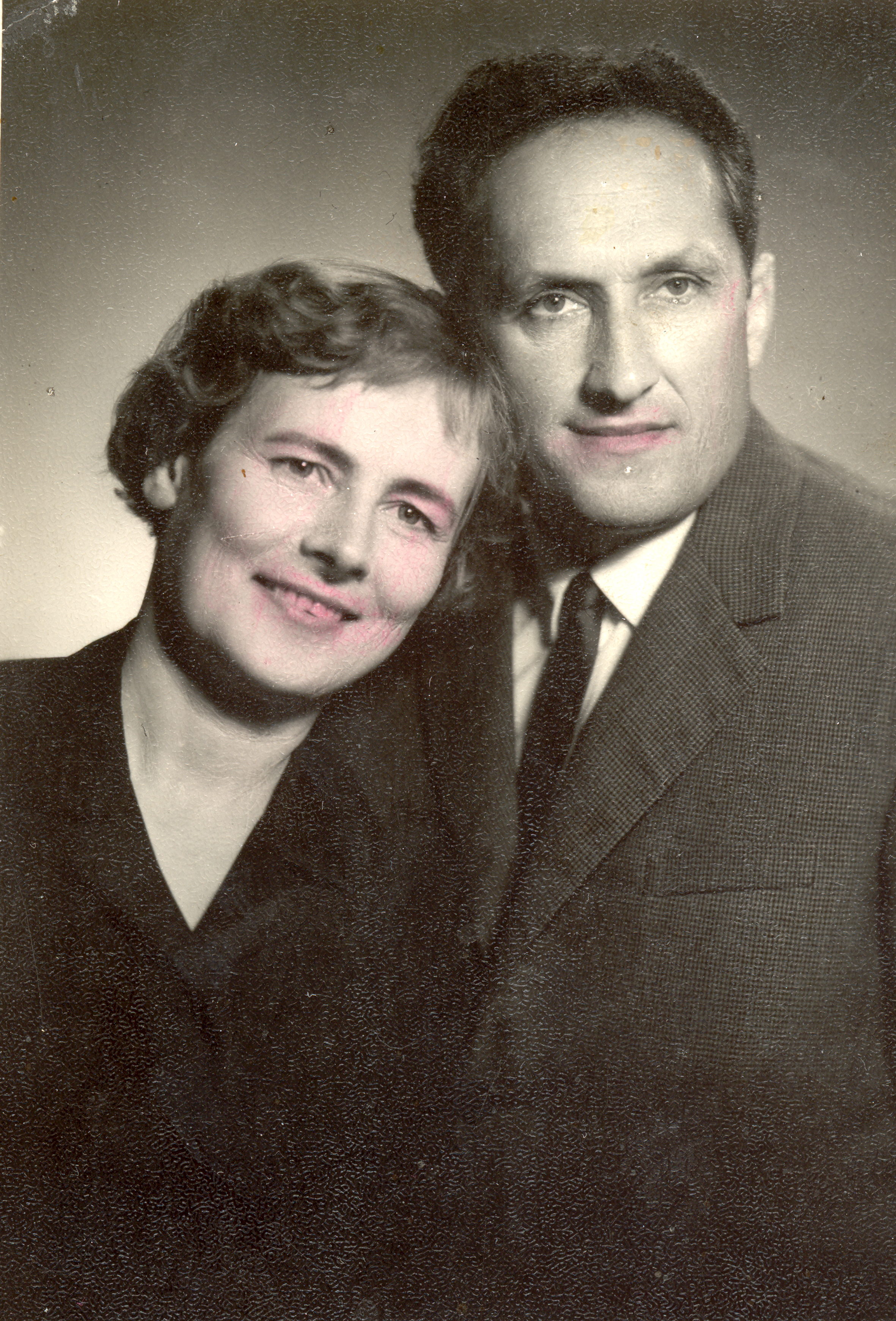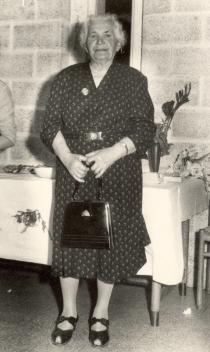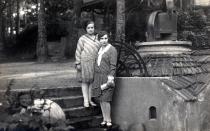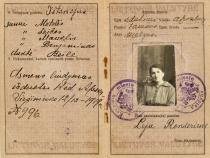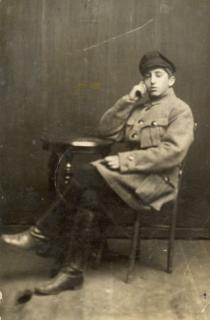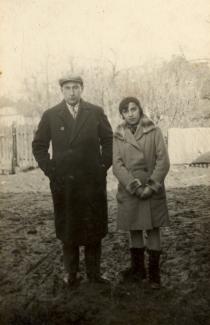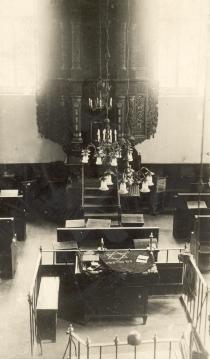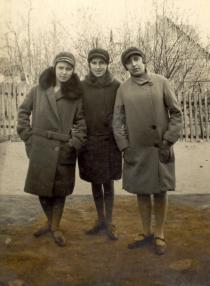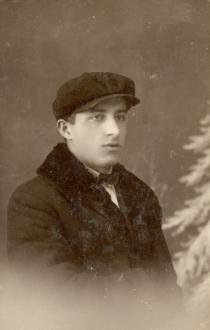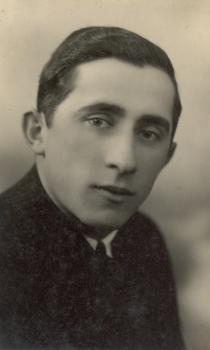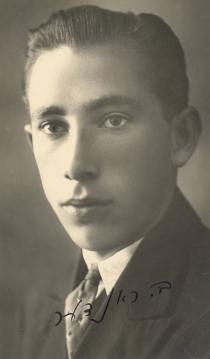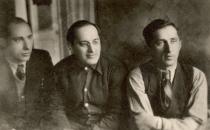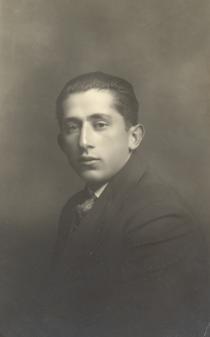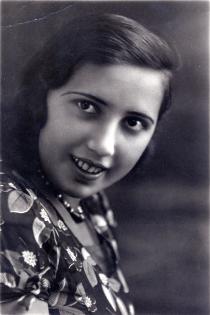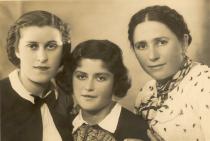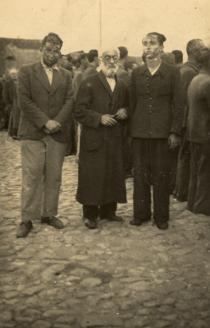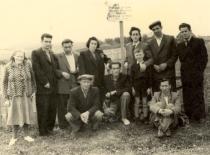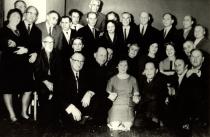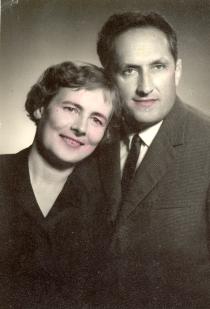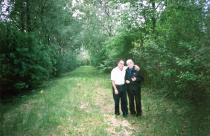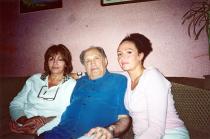These is I and my wife Meybute Taumineyte, Kaunas, 1976. My wife did not like being photographed. This is one of the few of her pictures.
In 1946 I found a job at district authorities in the Pagedai. Those were hard times - we founded kolkhozes, fought with Lithuanian gangs, who had left for the woods. I do not want to talk about that. Now the values have changed in Lithuania. I do not want my neighbors to know that I fought with the 'patriots'. I went from village to village being authorized to found kolkhozes. The chairmen of rural councils helped me a lot. There were traitors among them. It was the time when I got the notes with the threats to lose my life. I never said in which house I stopped. I always had a pistol with me. I had to run away in the woods and fight with the gangs. This is all I can in regard to your question.
In 1949 I met a young Lithuanian, who was a member of former underground comsomol. We had a lot in common. We got married 1948 and the same year our daughter was born and named after my mother Liya. My wife's name was Meybute Tamuinene (she kept her maiden name). She was born in Pagedai in 1925. She also worked for municipal authorities. My wife's father was a communist. He was a communist, very good-natured and mature man. He treated me very well. Later on I was sorry for not having married a Jew. My wife was not anti-Semitism, but she never understood the depth of my feelings for Israel, my willingness for repatriation. It was most unpleasant for me that Meybute was an ardent stickler of Stalin and took his death as if` he was her father. In a while we started being more and more aloof, but I did not divorce my wife because of our daughter.
In late 1949 I left Kaunas and my wife and daughter stayed in Pagedai. We still were not divorced and I considered myself to be a married man. We were just separated. In Kaunas I was immediately employed for the position of the assistant to the chairman of the municipal authorities. Then I was transferred to the position of a legal advisor. I did not have a problem with employment. It was enough to come to HR department in military jacket with the awards. I never wash it and keep all awards on it. Besides, it was the time when they needed literate employees, who are fluent in Lithuanian and Russian. In a while, my wife and daughter came to me and I was given an apartment. I have been living in Kaunas since then.
In 1953 I quitted my work in municipal authorities and was employed as HR manager at the factory. I entered extramural legal department of Vilnius university. I was defending my diploma and started looking for a job. In 1960 I was called by the municipal authorities and offered a job of a lawyer in a small shoe factory. I had worked there until retirement.
In 1960s I was fond of amateur art. There was a Jewish amateur theatre in Kaunas, which was about the only one in the USSR. We staged the plays of Sholom Aleichem, learnt and sang Jewish songs. In 1963 we gave a large concert devoted to the 20 year anniversary of the mass execution of Kaunas ghetto Jews. After that active members of that theatre were called in KGB and threatened that it would be closed down and repressed. I did not fear anything. It must have been hard to make me submissive.
